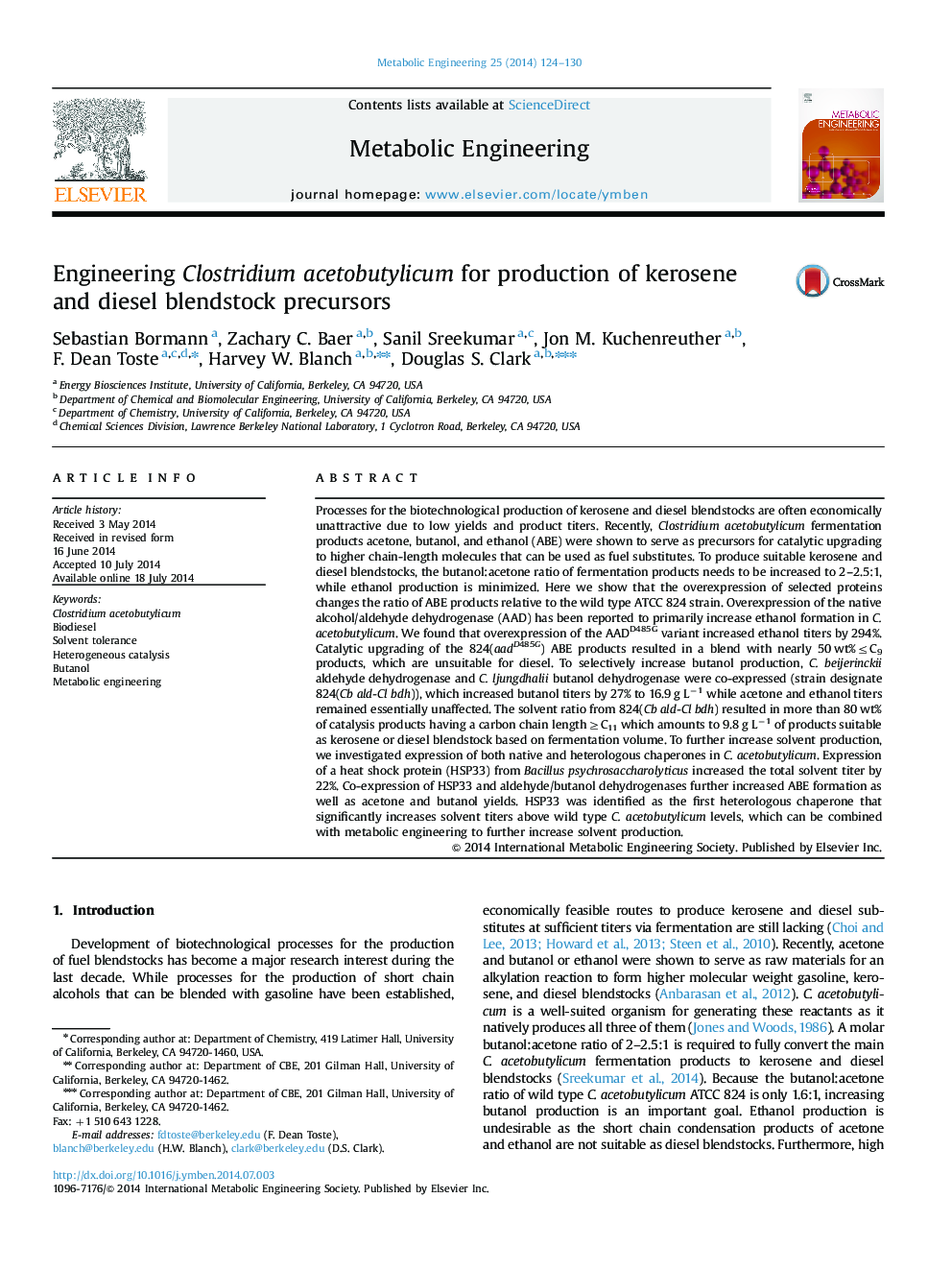| کد مقاله | کد نشریه | سال انتشار | مقاله انگلیسی | نسخه تمام متن |
|---|---|---|---|---|
| 6494565 | 44813 | 2014 | 7 صفحه PDF | دانلود رایگان |
عنوان انگلیسی مقاله ISI
Engineering Clostridium acetobutylicum for production of kerosene and diesel blendstock precursors
دانلود مقاله + سفارش ترجمه
دانلود مقاله ISI انگلیسی
رایگان برای ایرانیان
کلمات کلیدی
موضوعات مرتبط
مهندسی و علوم پایه
مهندسی شیمی
بیو مهندسی (مهندسی زیستی)
پیش نمایش صفحه اول مقاله

چکیده انگلیسی
Processes for the biotechnological production of kerosene and diesel blendstocks are often economically unattractive due to low yields and product titers. Recently, Clostridium acetobutylicum fermentation products acetone, butanol, and ethanol (ABE) were shown to serve as precursors for catalytic upgrading to higher chain-length molecules that can be used as fuel substitutes. To produce suitable kerosene and diesel blendstocks, the butanol:acetone ratio of fermentation products needs to be increased to 2-2.5:1, while ethanol production is minimized. Here we show that the overexpression of selected proteins changes the ratio of ABE products relative to the wild type ATCC 824 strain. Overexpression of the native alcohol/aldehyde dehydrogenase (AAD) has been reported to primarily increase ethanol formation in C. acetobutylicum. We found that overexpression of the AADD485G variant increased ethanol titers by 294%. Catalytic upgrading of the 824(aadD485G) ABE products resulted in a blend with nearly 50 wt%â¤C9 products, which are unsuitable for diesel. To selectively increase butanol production, C. beijerinckii aldehyde dehydrogenase and C. ljungdhalii butanol dehydrogenase were co-expressed (strain designate 824(Cb ald-Cl bdh)), which increased butanol titers by 27% to 16.9 g Lâ1 while acetone and ethanol titers remained essentially unaffected. The solvent ratio from 824(Cb ald-Cl bdh) resulted in more than 80 wt% of catalysis products having a carbon chain lengthâ¥C11 which amounts to 9.8 g Lâ1 of products suitable as kerosene or diesel blendstock based on fermentation volume. To further increase solvent production, we investigated expression of both native and heterologous chaperones in C. acetobutylicum. Expression of a heat shock protein (HSP33) from Bacillus psychrosaccharolyticus increased the total solvent titer by 22%. Co-expression of HSP33 and aldehyde/butanol dehydrogenases further increased ABE formation as well as acetone and butanol yields. HSP33 was identified as the first heterologous chaperone that significantly increases solvent titers above wild type C. acetobutylicum levels, which can be combined with metabolic engineering to further increase solvent production.
ناشر
Database: Elsevier - ScienceDirect (ساینس دایرکت)
Journal: Metabolic Engineering - Volume 25, September 2014, Pages 124-130
Journal: Metabolic Engineering - Volume 25, September 2014, Pages 124-130
نویسندگان
Sebastian Bormann, Zachary C. Baer, Sanil Sreekumar, Jon M. Kuchenreuther, F. Dean Toste, Harvey W. Blanch, Douglas S. Clark,